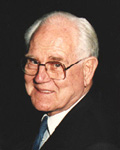 Geoffrey Bingham – a man who I’ve often referred to as ‘my grandfather in the faith’ – has died. Geoff was one of Australia’s ablest theologians and gifted teachers. He was also a prolific writer of books, (long) hymns and poetry. Thanks be to God for such an inspiring and encouraging servant.
Geoffrey Bingham – a man who I’ve often referred to as ‘my grandfather in the faith’ – has died. Geoff was one of Australia’s ablest theologians and gifted teachers. He was also a prolific writer of books, (long) hymns and poetry. Thanks be to God for such an inspiring and encouraging servant.
Geoff had a ministry throughout six States of Australia and in a number of countries overseas. An Anglican minister trained at Moore Theological College, he had pastored one church before going to Pakistan with his family under the aegis of the Church Missionary Society. There he was the Founder-Principal of the Pakistan Bible Training Institute at Hyderabad Sindh. He saw revival break out along with his ministry and had a wide coverage on the Indian sub-continent and beyond.
In 1966, he and the family returned to Australia and in 1967 he began as the Principal of the Adelaide Bible Institute (ABI, now Bible College of South Australia, BCSA). He left the college in 1973. Shortly after, New Creation Teaching Ministry was formed.
In 2005, he was honoured by being made a Member of the Order of Australia ‘for service to the community through Christian ministry, encouraging cross-cultural theological education and as an author’ (The Advertiser, January 26, 2005, 10).
Here’s one of Geoff’s poems, entitled ‘Beyond Despair’s Beyond’:
I have been born
Into a world
Strong with despair,
Tensing with fear,
Alert to the evil and calamity,
Straining and pawing at the birth,
With the tensed mother
Waiting the articulate cry
Of the new indignant,
Or protesting, flesh.
Out of the cover
Of the dark cavernous womb,
Into a larger womb,
The still confining world,
The wider prison
Of the engulfing cosmos.
Listening I hear the sounds,
The murmured opposition,
The muttered protest,
The first ripples of indignation
That will grow to the anger
Bursting in a surfing roar,
The battering protest
That first invades, then crashes
On the unassailable shore.
Of what am I speaking?
What is my astoundment about
But the inherent, the innate
Rise to the justified anger
Of the beleaguered humanity
Beleaguering the vindictive world,
The harsh weight
Of the unavoidable circumstances,
The poor jokes on the holy venom
Of the indestructible God.
This the understood Fate,
Inexorable and not comprehensible,
Fearful and vengeful,
Implanting the guilt faculty
That the imagination may twist
The knife of failure, the sharp edge
Of intolerable finitude
And human helplessness.
I am a man, one such
Of whom I speak,
I too have scanned and felt
The inexorable God and His fate,
The unpassioned, the uncanny action
Of His devastating wars, the destructible,
The shattering spears of pain
Piercing, evoking the inner stress,
Causing the fear of dreaded doom.
With other men—the other angry—
I am the warrior of despair,
The vagrant marine of anguish,
The flighting airman of the cavernous skies,
The doomed terrestrial of the Holy bloodiness,
Clenching my fist at the Uncaring,
The calloused and unfeeling One
Indifferent to His earthlings,
Of the flesh that knows beauty,
And the heart that hates
When confined concepting
And intense intellecting
Breaks into the wider sphere
And ranges round its God,
Raging and raging, scaling,
Eagling the higher realm,
Unmantling the supernal Majesty,
Unmasking the Ineffable,
Unclothing and revealing
The Eternal Failure,
The incompetent Deity.
I have lived where men and women
Crouch in the cabins of despair,
Freighted with the contemporary burden,
The massive accumulation
Of the unending sorrow, the suffering
Of the unending race, the timeless
And the angry passing on
Of the caravans of their past,
Weighted with bewilderment
And loaded with the bric-a-brac
Of useless anguish. I have lived
Where the hot and hasty anger
Compounded itself;
Shrieking at the Inexorable,
Little wonder that the puny fists
Beat in their hatred, hammered in wrath
And unmagnificent despair
On the stolid gates, the impassive
And pillared doors, silent as sentinels
Of the heedless Eternal.
Not for all time can man thus live,
Pitting his wits, securing his weak wisdom
Against the silent Celestial.
He must act. He must hate.
He must rage until the inner fires
Commit their own holocaust,
The self-destructing of the savage soul
Until it withers down
To muttering inanity, mouthing
The incomprehensible gloom
Of his dark nether regions.
Not for long, not for ever
Can the galled spirit sustain itself;
The rushing and receding tides
Of its stimulating but suddenly
Sterile adrenalin. The Object must enlarge,
Expanding into the Gloomy and the Vengeful,
Old Inexorable with His relentless grasping
Of the poor prideful flesh, the befuddled
He once initiated and now
Sustains for its self-wrought orgies
Of justful pride and bloody indignation.
Give us the heights to soar, discovering;
The depthful depths to plummet,
Uncovering the dimensions that we did not know—
If they be there (they must be there)—
Or wholly annihilate, compress
Into ultimate nothing the wounded
And the angry, or else
Make us the creatures who can comprehend
The fool futility, and know
Despair’s dimensions are but tragedy,
That justful anger is but baneful pride,
Hubris above the true Celestial,
Idiocy of the self-appointed judge,
The earthly fleshling soaring high
Beyond his rightful realm.
Show us the guilt is but the good,
The gift of God, communicating,
The prodding of the conscience,
The awakening power
Of the new sensitivity.
Not in the ultimate is despair;
Not in the outcome is the fear;
And not the terror is the true telos:
But in the gentle spirit, meek in face,
Of the Inexplicable. Knowing is there
For the finally humbled,
The consummated simple one
Who no longer batters at
The serene Celestial.
His is no bitter wrath. Not one is justified
Who has not hung on the same Tree
As that of the Authentic Sufferer.
None has entered into the true anguish,
The embracing love, the universal agape
That answers only the proliferating query,
That brings the ignorant questionnaire
To its own and obvious end.
Nerveless hands cease their trembling,
The baffled spirit its eternal questing,
And the angry muttering
Dies to a painful silence
Where the constant steady dripping
Of love’s clotted gouts
Strike answers on the desolate rocks
And the dry and dreary stones
Of more desolate Golgotha.
Not in the brilliant concepting,
Nor in the peerless logic
Of immaculate man—the justified one—
Lies the answer. Not in the burning quest
For cosmic and anthropothic justice
Lies the healing, the final peace
Of the embattled and embattling
Humanity. Justice brings nought
Of itself. No peace ineffable,
Or serenity ensconced; not
Until the love itself
Justifies the unjust, the prideful,
In the vast and swirling vortex,
The incredible complex
Of the Ineffable, suffering.
Down there in the dark maelstrom,
The inexplicable anguish, the strong tides
Of the simple suffering lies the complete.
There alone is the living solution,
The unknowable revelation made known,
The outworking actuation of the love
That dooms death to death,
Tails dread mortality and its evoked anger
To its inevitable extinction.
Incomprehensible is love’s comprehensible
Until the astounded spirit grasps the hem
Of the Celestial suffering.
The dark tides of the self-compounded anger
Still rage in the multifarious madness
Of the enraged humanity. The crazed surf
Still breaks with its booming
On the barriers of seeming fate.
The roar, however, is the lie
And the sneering sophistication
Of the unwise, the smooth, superficial
And blasé creature, cynical and joyless,
The ungrateful man, unknowing yet knowing
He must cast the Eternal love in gloomed garments
Of the Inexorable, the ruthless, relentless
And painfully pitiless, the darkly Inexplicable;
Else would his own unempathy
Be unmasked, and his fierce tides
Protesting in hypocrisy his own primal purity
Appear as the sewage of the heart,
The pathetic litter of his own wayside
Strewn from eternity to eternity;
The graffiti of his own mind
Inscribed in furtive secrecy
Against the kindly Eternal
Who gave him birth in love.
Beyond the despair lies No-despair;
Beyond the gloom, the doom, and justful rage
Of the unjust imagination
Lies the serenity, the peaceful persistence
Of the generative love. Think not then
The high indignation upthrust from authentic truth,
The true purpose, the living telos:
Know, rather, that its rebel pride
Rears back from the true submission,
The functional fullness
Of the primal creation. Lordship is lost
When the prideful spirit reaches to take
And grasp the Celestial initiative
And its high prerogatives.
Believe not the brilliant artistry,
The cunning sophistry, the conniving,
Portraying the stark, deifying despair,
Giving grandeur to its indignation
At massed cruelty, divine ruthlessness,
And feeding the impassioned spirit
With fuel for its indignation.
Come, dethrone the judge within;
Let him stand under judgement,
Bowed in the dock of God, accepting the verdict
And the Divine execution, the true edict
Of the holy Judge; then let him say
If ever he saw such vindication,
Such fiat of acquittal, such liberation
Of the darkful doomed humanity,
Such glory of liberty imposed
By holy Love, in the empathic motions
Of the eternal crucible, the Cross
Crucial to man and God, the pitted hate
The Ineffable endured in the paling flesh
Of his ceaseless suffering. Anger not only dies
But with it the despair and the doom;
The gloom dissolves in the brilliant blaze
Of the Sun of righteousness
Who breaks on the ebullient day,
Emancipating the purified spirit,
Delivering it to its true destiny,
Thrusting it forward resistlessly
To the Divine delights, the endless banquet
Of the eternal Love. Pleasures are prodigal
At His right hand, everlastingly.
Here, where the new humanity
Breaks into transforming truth,
The lie is doomed to die, the light to flow
And the new un-anger and un-rage
To gladly justify the God who justifies,
And for ever to explore
The stately and stretching dimensions
Of the authentic, the promised peace
And the eternal serenity.
– Geoffrey C. Bingham, ‘Beyond Despair’s Beyond’, in The Spirit of All Things (Blackwood: Troubadour Press, 1991), 65–72.


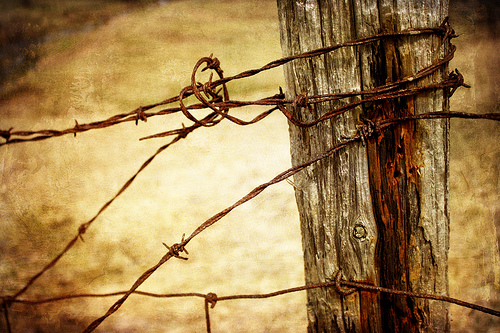
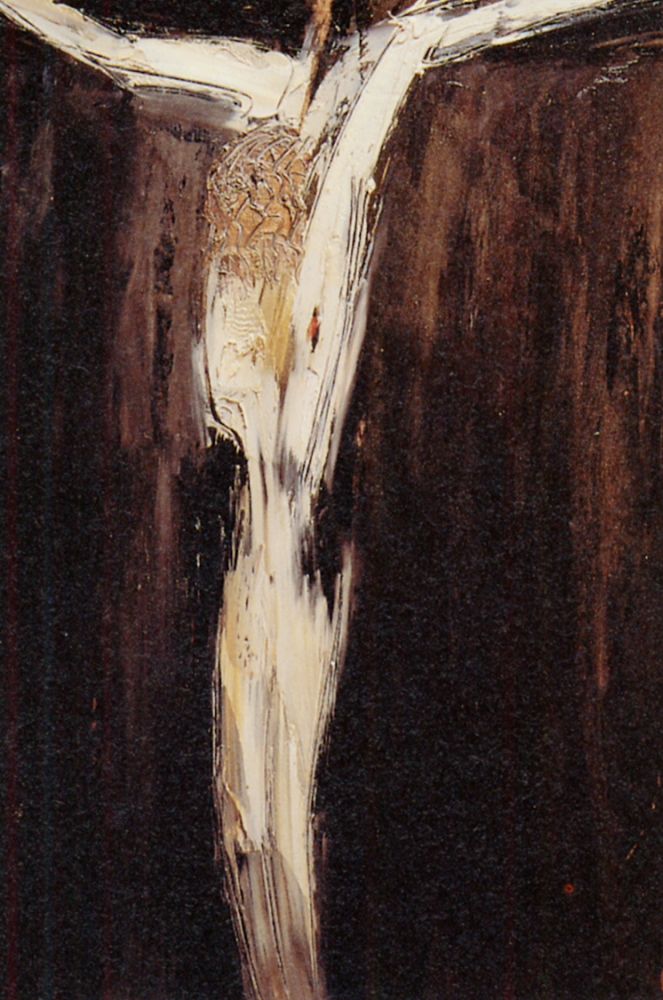

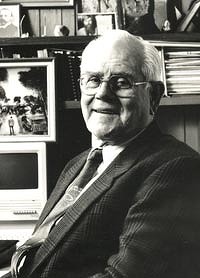
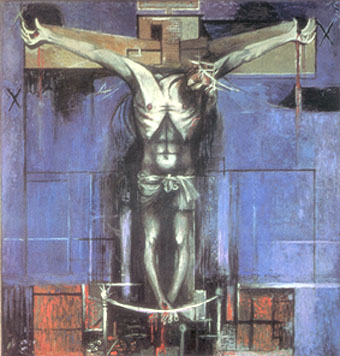


 In his wonderful study,
In his wonderful study,  Writing of Bacon, Locke and Scottish common sense philosophy (uncritically lumped together), Nevin writes: ‘The general character of this bastard philosophy is, that it affects to measure all things, both on earth and in heaven, by the categories of the common abstract understanding, as it stands related to simply to the world of time and sense’. – John W. Nevin,
Writing of Bacon, Locke and Scottish common sense philosophy (uncritically lumped together), Nevin writes: ‘The general character of this bastard philosophy is, that it affects to measure all things, both on earth and in heaven, by the categories of the common abstract understanding, as it stands related to simply to the world of time and sense’. – John W. Nevin,  In his brilliant treatment on forgiveness,
In his brilliant treatment on forgiveness,  sin of victimisation; and second, liberation as victims from the bitterness and hatred that attend the sense of irreversible injustice, the hurt of damaged lives, irretrievably lost opportunities, and all the other evils that result from sin. There is liberation here, he said, because precisely at the point where we cannot forgive our enemies the Gospel suggests that our sole representative, the sole priest of our confession, does what we cannot do – he stands in and forgives our victimisers for us and in our place as the One on behalf of the many – and then invites us to participate in the very forgiveness he has realised vicariously on our behalf. On these grounds we are not only permitted to forgive but obliged and indeed commanded to forgive others. Alan said, ‘Where we are not entitled to forgive, the crucified Rabbi is. And where we are unable to forgive, we are given to participate in his once-and-for-all forgiveness and to live our lives in that light and from that centre – not least in the political realm’. He cited his dad (JB Torrance), who defined worship as ‘the gift of participating by the Spirit in the Son’s communion with the Father’. The consequence of any ethic, therefore, that warrants the name ‘Christian’ must be conceived in parallel terms, namely as the gift of participating by the Spirit in the incarnate Son’s communion with the Father. ‘Forgiveness’, Alan stressed, ‘is the gift of participating in a triune event of forgiveness. In an act of forgiveness, the Father sends the Son, who, by the Spirit, forgives as God but also, by the Spirit, as the eschatos Adam on behalf of humanity. The mandate to forgive must be understood in this light.’
sin of victimisation; and second, liberation as victims from the bitterness and hatred that attend the sense of irreversible injustice, the hurt of damaged lives, irretrievably lost opportunities, and all the other evils that result from sin. There is liberation here, he said, because precisely at the point where we cannot forgive our enemies the Gospel suggests that our sole representative, the sole priest of our confession, does what we cannot do – he stands in and forgives our victimisers for us and in our place as the One on behalf of the many – and then invites us to participate in the very forgiveness he has realised vicariously on our behalf. On these grounds we are not only permitted to forgive but obliged and indeed commanded to forgive others. Alan said, ‘Where we are not entitled to forgive, the crucified Rabbi is. And where we are unable to forgive, we are given to participate in his once-and-for-all forgiveness and to live our lives in that light and from that centre – not least in the political realm’. He cited his dad (JB Torrance), who defined worship as ‘the gift of participating by the Spirit in the Son’s communion with the Father’. The consequence of any ethic, therefore, that warrants the name ‘Christian’ must be conceived in parallel terms, namely as the gift of participating by the Spirit in the incarnate Son’s communion with the Father. ‘Forgiveness’, Alan stressed, ‘is the gift of participating in a triune event of forgiveness. In an act of forgiveness, the Father sends the Son, who, by the Spirit, forgives as God but also, by the Spirit, as the eschatos Adam on behalf of humanity. The mandate to forgive must be understood in this light.’